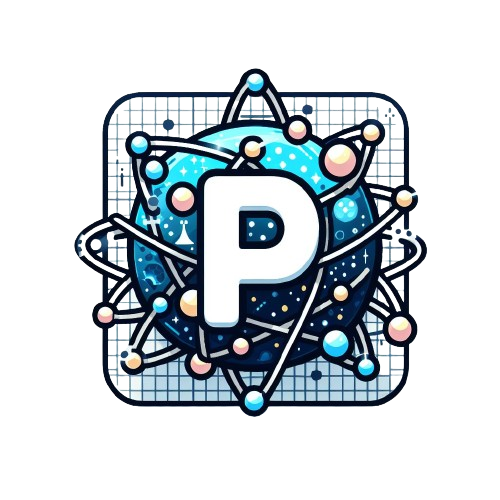Version 2.0

While the core functionality of PURISTA remains intact, this release introduces significant enhancements based on real-world experience and production use cases.
What’s New?
There’s a lot! Here are some of the highlights:
- Support for npm, Bun, Yarn, and pnpm
- General Bun support
- Customizable file and folder casing
- Customizable event casing
- Resource definitions in service builders
- Exporting service definitions to JSON files
- REST client generation
- General improvements and bug fixes
CLI Enhancements
The PURISTA CLI has been completely revamped! The init option has been removed and replaced by a more convenient create command, which works with your preferred package manager.
To start a new project, simply use your favorite package manager:
npm create purista@latestbun create purista@latestyarn create purista@latestpnpm create purista@latestThis command will guide you through the process of creating a new PURISTA project.
As you can see, all major package managers are now supported. Additionally, official support has been added for Bun and Biome.
The CLI has been completely rewritten in TypeScript. As a result, the @purista/cli package now includes an API, allowing developers to programmatically create services, commands, and subscriptions.
Features
PURISTA 2.0 introduces several new features to enhance flexibility and maintainability.
Resources
Staying true to PURISTA’s core principles — clear interface definitions, separation of concerns, and structured architecture — Resources have now been introduced to service builders.
A resource is an entity available in your application that is provided to a service instance and passed down to commands and subscriptions. A common example of a resource is a database connection or connection pool.
You can now define resources within your service builder:
import type { ServiceInfoType } from '@purista/core'
import { ServiceBuilder } from '@purista/core'
import { generalPingPongServiceInfo } from '../generalPingPongServiceInfo.js'
import { pingPongServiceV1ConfigSchema } from './pingPongServiceConfig.js'
export const pingPongServiceInfo = {
serviceVersion: '1',
...generalPingPongServiceInfo,
} as const satisfies ServiceInfoType
export const pingPongV1ServiceBuilder = new ServiceBuilder(pingPongServiceInfo)
.setConfigSchema(pingPongServiceV1ConfigSchema)
.defineResource<'resourceName', TypeOfResource>() // [code ++]Defining a resource is a TypeScript type definition only. There is no runtime validation or enforcement.
Resources can be accessed in commands and subscriptions via the context object:
import { ServiceEvent } from '../../../../serviceEvent.enum.js'
import { pingPongV1ServiceBuilder } from '../../pingPongV1ServiceBuilder.js'
import {
pingPongV1PingInputParameterSchema,
pingPongV1PingInputPayloadSchema,
pingPongV1PingOutputPayloadSchema,
} from './schema.js'
export const pingCommandBuilder = pingPongV1ServiceBuilder
.getCommandBuilder('ping', 'send a ping')
.setSuccessEventName(ServiceEvent.Pinged)
.addPayloadSchema(pingPongV1PingInputPayloadSchema)
.addParameterSchema(pingPongV1PingInputParameterSchema)
.addOutputSchema(pingPongV1PingOutputPayloadSchema)
.setCommandFunction(async function (context, _payload, _parameter) {
const result = context.resources.resourceName.myResourceMethod() // [code ++]
return 'PING!'
})Since resources are TypeScript types only, mock implementations can easily be used in tests. This makes unit testing more efficient, allowing you to test commands without depending on the actual resource implementation.
Service Definition Export
One of the most powerful aspects of PURISTA is that nearly all interface definitions are programmatically accessible and structured based on industry standards like OpenAPI. This means these definitions can be extracted, exported, and saved as JSON files.
With this capability, client code generation becomes straightforward. However, generating client code is just one potential use case. The broader vision is to provide a standardized format that can be leveraged to generate documentation, diagrams, or even a UI for building PURISTA applications.
If you're interested in maintaining a consistent logical structure across different parts of your system, the example implementation of a client SDK may be particularly useful.
Instead of writing traditional fetch calls, you can now use simplified client code like this:
const client = new HttpClient()
// client.[SERVICE_NAME].v[SERVICE_VERSION].[COMMAND_NAME]
const result = client.foo.v1.bar(payload, parameter)This approach ensures that your client-side code follows the same structure as your PURISTA-based backend, maintaining consistency and reducing development overhead.
Improvements
Beyond the new CLI and features, significant work has been done to enhance the overall developer experience. In particular, the type system has been improved, making it easier to write more robust and maintainable code. Additionally, the documentation has been updated to better support developers.
Breaking Changes
There are no major breaking changes in core functionality—meaning your business logic remains unaffected. However, there are a few notable changes:
Deprecated Method: .setDefaultConfig()
The .setDefaultConfig() method in the service builder is now deprecated. The recommended approach is to set default values directly in your configuration validation schema.
Deprecated Fastify-Based HTTP Service
The package @purista/httpserver is now deprecated, and it is highly recommended to migrate to the Hono-based package:
✅ Use instead: @purista/hono-http-server
The reason for this transition is that Fastify is designed for very specific use cases, and integrating it flexibly with PURISTA proved challenging. In contrast, Hono offers:
- Better out-of-the-box support for a wider range of use cases
- Higher flexibility
- Impressive performance
For example, with Hono, dynamically adding routes at runtime is much easier than with Fastify.
While Fastify remains a great and widely used framework, it doesn’t align perfectly with PURISTA’s architecture. Therefore, we’ve decided to move away from Fastify and recommend using Hono instead.
Deprecated Method: .disableHttpSecurity()
The .disableHttpSecurity() method in the command builder is now deprecated, as the method name was somewhat misleading.
By default, all endpoints are non-public. If you want to expose an endpoint publicly, you must now use:
✅ New method: .makeEndpointPublic()
Changed Method Signature for Mock Context Getters
The input structure of the mock context getter methods has changed.
🔴 Before (Pre-2.0): These functions required multiple parameters.
🟢 Now (2.0+): They take a single object containing all necessary information.
Example of the change
const ctx = pingCommandBuilder.getCommandContextMock(payload, parameter, sandbox) // [code --]
const ctx = pingCommandBuilder.getCommandContextMock({ // [code ++]
payload, // [code ++]
parameter, // [code ++]
sandbox, // [code ++]
}) // [code ++]This change affects the following methods:
getCommandContextMockgetCommandTransformContextMockgetSubscriptionContextMockgetSubscriptionTransformContextMock
These adjustments simplify function calls, improve code readability, and align PURISTA’s API with modern best practices.
